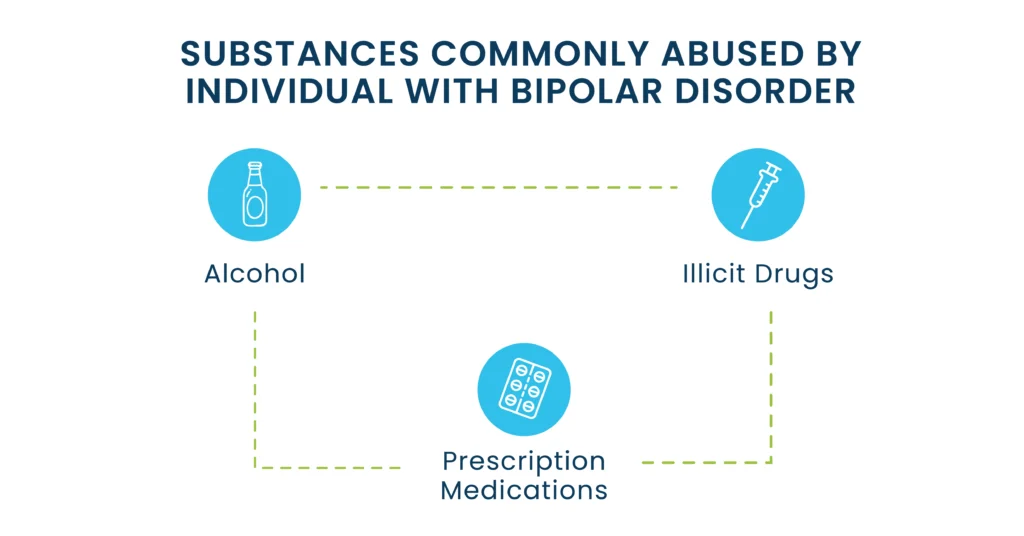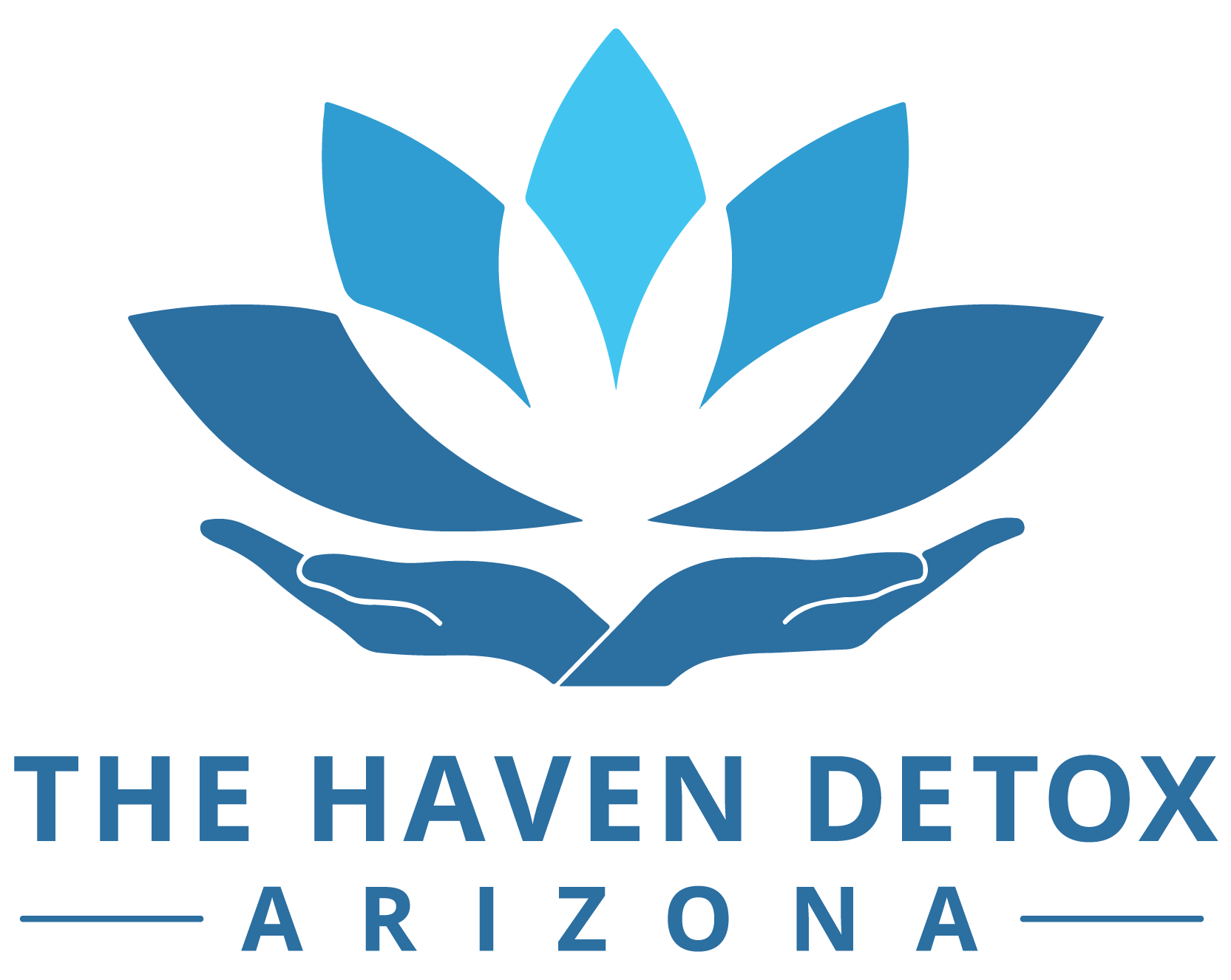Co-Occurring Disorders: Bipolar Disorder And Addiction
Bipolar disorder and addiction often occur together, making it vital to understand their connection. Many people with bipolar disorder may turn to substances, like alcohol or drugs, as a way to manage emotional highs and lows. It can worsen symptoms over time. Learning how these conditions interact is vital in treating both. Substances can alter brain chemistry, complicating the stability of moods.
Additionally, mood swings in bipolar disorder can increase the likelihood of turning to substances for relief. Integrated treatment that addresses both mental health and addiction is essential for long-term recovery.
Key Takeaways
Bipolar disorder encompasses extreme mood swings, which can profoundly disrupt daily life. Here’s what you need to know:
- The connection between bipolar disorder and addiction is complex and requires careful attention.
- Diagnosing co-occurring bipolar disorder and addiction involves navigating overlapping symptoms.
- Integrated treatment approaches enhance recovery by addressing both conditions together.
The Haven Detox-Arizona is your dedicated partner on the journey to lasting wellness and resilience. For more details, call us at (520) 525-1252.
Bipolar Disorder Explained
Bipolar disorder is a mental health condition that causes extreme mood swings, ranging from depressive lows to manic highs. It affects millions in the United States and can significantly disrupt daily life if not properly managed.
Types Of Bipolar Disorder
Bipolar disorder includes several types, each with unique patterns of mood swings. Bipolar I involves manic episodes that last at least seven days or are severe enough to require hospitalization.
Bipolar II involves hypomania, a less severe form of mania, along with major depressive episodes. The cyclothymic disorder presents with periods of hypomanic and depressive symptoms that don’t meet the full criteria for either.
Symptoms And Diagnosis
Symptoms of bipolar disorder vary between the high and low phases. During mania, individuals may experience elevated energy, restlessness, or impulsivity. Depressive episodes can bring overwhelming sadness, lack of power, and loss of interest in daily activities.
Diagnosis requires a thorough evaluation by a mental health professional. The professional will assess mood patterns over time and personal and family history.
Causes And Risk Factors
The exact causes of bipolar disorder remain unclear, but genetics, brain structure, and environmental factors all play a role. A family history of the disorder increases the likelihood of developing it. Stressful life events, trauma, and substance use can also trigger episodes or worsen symptoms.
Link Between Bipolar Disorder And Addiction
Bipolar disorder and addiction frequently co-occur, with individuals often using substances to cope with the disorder’s intense mood swings. This connection highlights the need for comprehensive care that addresses both conditions.
Prevalence Rates
Research shows a high prevalence of substance abuse among people with bipolar disorder. Studies estimate that a large number of individuals with bipolar disorder also struggle with substance use issues. This high rate makes integrated treatment approaches essential to recovery.
Shared Risk Factors
There are shared risk factors between bipolar disorder and substance use. Genetics, early life experiences, and trauma can influence both conditions. Stressful environments and unstable relationships can also contribute to the onset of both.
Self-Medication Hypothesis
Many individuals with bipolar disorder use substances as a form of self-medication. They may turn to alcohol, prescription drugs, or illicit substances to alleviate depression or manage manic episodes.
However, this short-term relief often leads to a worsening of symptoms over time. The self-medication hypothesis explains why individuals may become dependent on substances without realizing the long-term harm they are causing.
Impact On Treatment And Recovery
The combination of bipolar disorder and substance use presents unique challenges for treatment and recovery. Substance use can interfere with prescribed medications for mood stabilization, making treatment less effective.
Additionally, mood swings may increase the risk of relapse into substance use. Therefore, integrated treatment approaches that address both the mental health and substance use aspects simultaneously are vital for lasting recovery.
Substances Commonly Abused By Individuals With Bipolar Disorder
Individuals with bipolar disorder are prone to abusing various substances in an attempt to manage symptoms, which often exacerbates the condition.

Alcohol
Alcohol is one of the most commonly abused substances among people with bipolar disorder. It may provide temporary relief from depressive episodes, but it often worsens both depression and mania in the long term.
Regular alcohol use can interfere with prescribed medications, leading to more severe mood swings and increasing the likelihood of relapses in both mood and substance use.
Prescription Medications
Many individuals with bipolar disorder misuse prescription medications, such as painkillers or anti-anxiety drugs. This misuse can stem from the need to control symptoms like anxiety or physical discomfort.
However, this can lead to dependence and complications with treatment, especially when combined with other prescribed medications for bipolar disorder.
Illicit Drugs
Illicit drugs, including cocaine, marijuana, and methamphetamine, are often used by individuals with bipolar disorder to manage extreme mood states.
While these substances might provide temporary relief, they can significantly disrupt mood regulation and worsen both manic and depressive episodes.
Challenges In Diagnosing Co-Occurring Bipolar Disorder And Addiction
Diagnosing co-occurring bipolar disorder and addiction can be complex due to overlapping symptoms and other factors. Early and accurate diagnosis is essential for effective treatment.
Overlapping Symptoms
Bipolar disorder and substance abuse share many overlapping symptoms, including mood swings, impulsivity, and erratic behavior. These similarities can make it difficult for healthcare providers to distinguish between the two conditions. As a result, some symptoms may be attributed to one condition when caused by the other.
Misdiagnosis And Its Consequences
Misdiagnosis is a common issue when bipolar disorder and substance use co-occur. Substance-induced mood changes can be mistaken for bipolar disorder, while untreated bipolar symptoms may lead to more severe substance use. Misdiagnosis can delay proper treatment, leading to worsening symptoms and increased health risks.
Importance Of Dual Diagnosis
A dual diagnosis involves identifying both bipolar disorder and substance use issues in an individual. This approach allows for comprehensive treatment that addresses both conditions.
Without dual diagnosis, treatment may focus only on one aspect of the individual’s health, leaving the other untreated. Dual diagnosis is essential for creating a balanced, long-term treatment plan that promotes recovery and stability.
Treatment Approaches For Co-Occurring Bipolar Disorder And Addiction
Effective treatment for co-occurring bipolar disorder and addiction requires an integrated approach that addresses both mental health and substance use issues.
Integrated Treatment Programs
Integrated treatment programs are designed to treat both bipolar disorder and addiction simultaneously. These programs combine medical care, therapy, and support services to address all aspects of an individual’s health.
Treating both conditions gives individuals a better chance of long-term recovery and stability. This comprehensive approach effectively reduces relapse rates and improves overall quality of life.
Medication And Mood Stabilizers
Medication plays a crucial role in managing bipolar disorder, particularly mood stabilizers like lithium or anticonvulsants. These medications help regulate mood swings and prevent extreme highs and lows.
However, when combined with substance use, their effectiveness can be diminished. Proper medical oversight is vital to ensure medications are working effectively alongside treatments for substance use.
Psychotherapy And Counseling
Psychotherapy, such as cognitive-behavioral therapy (CBT), helps individuals manage bipolar disorder and substance use by teaching coping mechanisms and strategies to avoid triggers. Counseling sessions focus on understanding emotional responses and developing healthier stress management methods.
Lifestyle And Behavioral Therapies
Lifestyle changes and behavioral therapies are essential for managing both bipolar disorder and addiction. Techniques such as mindfulness, exercise, and healthy routines help individuals maintain stability and reduce the risk of relapse.
Behavioral therapies teach individuals how to manage emotions, avoid triggers, and replace harmful habits with positive actions.
Support Groups And Peer Support
Support groups and peer networks provide a valuable resource for those with co-occurring bipolar disorder and substance use issues. Sharing experiences with others who face similar challenges offers emotional support and reduces feelings of isolation. Peer support is also essential for accountability, helping individuals stay on track with their recovery goals.
Managing Triggers And Preventing Relapse
Managing triggers is an essential part of maintaining long-term sobriety and stability in bipolar disorder.
Identifying Personal Triggers
Individuals need to identify personal triggers that may lead to mood swings or substance use. Triggers can include stress, lack of sleep, or certain social situations.
By learning to recognize these triggers, individuals can take proactive steps to avoid them or respond healthier. This awareness is vital for preventing relapse and maintaining stability.
Developing Healthy Coping Mechanisms
Developing healthy coping mechanisms is essential for managing bipolar disorder and preventing substance use. Techniques such as deep breathing, exercise, or meditation can help individuals handle stress and emotional challenges without turning to substances.
Role Of Family And Friends
Family and friends play a vital role in supporting individuals with bipolar disorder and addiction. Their involvement can provide emotional support, help monitor progress, and encourage healthy habits. Family members and friends can also assist by creating a stable environment that reduces triggers and promotes recovery.
Long-Term Strategies For Maintaining Sobriety
Long-term strategies for sobriety include creating structured routines, setting goals, and staying connected to support networks. Consistency in daily life helps reduce the risk of relapse.
Regular therapy sessions, involvement in support groups, and ongoing medical care are also essential parts of maintaining sobriety and managing bipolar disorder over time.
Resources And Support For Individuals And Families
Access to resources and support is vital for individuals and families coping with bipolar disorder and addiction.
Professional Organizations
Professional organizations, such as the National Alliance on Mental Illness (NAMI) and the Substance Abuse and Mental Health Services Administration (SAMHSA), offer valuable resources, including educational materials and treatment referrals.
Helplines And Hotlines
Helplines and hotlines, like the SAMHSA National Helpline, provide immediate assistance to individuals in crisis or those seeking treatment. These services connect individuals with trained professionals who can offer guidance and support.
Educational Materials And Books
Educational materials, such as books and brochures, offer insight into managing bipolar disorder and addiction. These resources help individuals and families understand the conditions and learn effective strategies for recovery.
Online Communities And Forums
Online communities and forums provide a platform for individuals to share experiences, offer support, and find information. These spaces foster a sense of connection and provide an outlet for discussing the challenges of living with co-occurring disorders.
Future Directions In Research And Treatment
Ongoing research and new treatments are essential for improving care for those with bipolar disorder and addiction.
Advances In Medical Research
Advances in medical research continue to improve our understanding of bipolar disorder and addiction. New medications, treatment protocols, and diagnostic tools are being developed to enhance recovery outcomes. These advancements are essential for providing individuals with more effective and personalized care.
Innovative Therapy Techniques
Innovative therapy techniques, such as neurofeedback and transcranial magnetic stimulation (TMS), offer new ways to treat bipolar disorder and addiction. These approaches target brain function and help regulate mood, providing an alternative to traditional treatments.
Policy And Legislative Changes
Policy and legislative changes are essential for expanding access to treatment for co-occurring bipolar disorder and addiction. Efforts to improve insurance coverage, increase funding for mental health programs, and reduce stigma surrounding mental health and substance use disorders are ongoing.
Frequently Asked Questions (FAQs)
Is there a correlation between bipolar and addiction?
Bipolar disorder, also known as manic depression, often coexists with alcohol addiction. Both are mental health disorders that affect energy levels, mood, and behavior. During manic phases, people may engage in risky behaviors, including substance use. It can lead to addiction.
Depressive phases may also trigger substance use as a way to cope. Treatment options often include therapy, medications, and support groups, addressing both bipolar symptoms and addiction together.
Managing energy levels through balanced treatments is vital to prevent mood swings and reduce the risk of relapse. Treating both conditions together improves overall mental health outcomes.
What treatment options are available for individuals with both bipolar disorder and addiction?
Treatment for individuals with both bipolar disorder and addiction involves integrated care addressing both conditions simultaneously. Medication, such as mood stabilizers or antipsychotics, helps manage bipolar symptoms, while therapies like cognitive-behavioral therapy (CBT) target addiction.
Important care programs, like dual-diagnosis treatment centers, offer specialized support for both conditions, combining medical treatment, therapy, and peer support. Medication-assisted treatment (MAT) can also help reduce cravings and withdrawal in addiction recovery.
Holistic approaches, such as mindfulness, nutrition, and exercise, play a vital role. Continuous monitoring ensures balanced treatment, reducing relapse risks. Support groups like Alcoholics Anonymous or SMART Recovery offer ongoing community support.
Transform Your Life with The Haven-Arizona
At The Haven Detox, we tackle the challenges of addiction head-on, empowering you to reclaim your life with comprehensive support and expert care.
Our residential treatment offers a haven for healing, fostering a structured environment where recovery can flourish. In our group therapy sessions, individuals find strength in shared experiences, building a supportive community that promotes accountability and growth. Lastly, our tailored addiction treatment strategies address unique needs, equipping you with tools to overcome obstacles. So, take the first step towards your recovery journey by calling (520) 525-1252.







